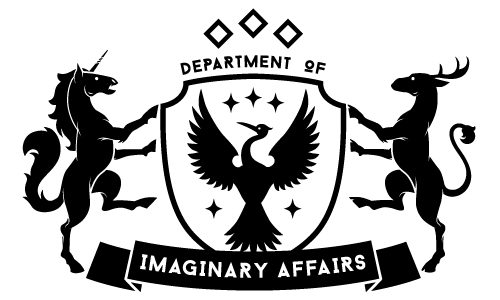What can another year bring for the Department of Imaginary Affairs? So much! We start a new calendar year with 4 months left of Year 1 of The Stories of Us, which gets us 1/3 of the way through our funding. This is amazing and overwhelming at the same time. We have been doing so much and barely scrapping the surface of what we want to do.
This month’s #thisisimaginationatwork comes from our fabulous volunteer Alex. We first met Alex in August at the Harbourfront at the Exile Festival. After a quick chat and later a follow-up coffee, I learned about her passion and work with newcomers and eagerness to support our work. Alex has been supporting Mathura in workshops and I am so grateful to her for being at workshops when I couldn’t be.
When we started these blogs, we wanted this to be a series of vulnerable behind the scenes look at how we do our work and the challenges we face. We thought asking Alex to share her perspectives would help shed some light on what really happens in our workshops. Alex shares an insightful look at the tensions of holding space and valuing the untold and told stories of newcomers.
As the new year begins, I shift back into taking on a bit more responsibility again. While my babe and I have already been having bi-weekly programming meetings with Mathura and going to some professional development, I am hoping we can shift some of our funds towards developing a community of practice and learning network to support the work we have been doing thus far in The Stories of Us. Fingers crossed.
In the meantime, I will let you see what Alex has been observing.
– Jenn
“The stars we are given. The constellations we make. That is to say, stars exist in the cosmos, but constellations are the imaginary lines we draw between them, the readings we give the sky, the stories we tell.”
― Rebecca Solnit, Storming the Gates of Paradise: Landscapes for Politics
During my time with the Department of Imaginary Affairs, I’ve been fortunate to help facilitate several first-round Stories of Us workshops. Whether in a Toronto Public Library space, LINC workshop classroom, or small community gathering, I’m struck by the way that people narrate their lives both to themselves and to others. The DIA workshops echoed a previous theme that came up for me in my experiences as a teacher of refugee youth in New York City and as a qualitative researcher speaking to women in Timor-Leste: I’ve witnessed a hesitation around whether a story is “worthy” or “interesting” enough to be told. This seems to be the case especially in these settings, from people with highly complex experiences that have lived through an enormous amount of change or challenges.
I consider this hesitation and that it perhaps stems from the way our world prioritizes voices and agency. By extension, I recognize how important it is for every workshop participant to feel heard and given space to share. This is a challenge in a room where there are time constraints and large numbers of participants; how can we sensitively facilitate conversations for newcomers from around the world? How can we honour important differences in experience while also nurturing powerful similarities and build solidarity in the room?
DIA makes it a priority to ensure the space is open, safe, and sensitive to all participants. The silences – what is understandably not brought up in these spaces, or what can’t be expressed in words – is as much a part of the stories as words are. The most moving moments have often been nods, smiles, or tears; non-verbal expressions of understanding or support that have even transcended language barriers. The similarities have been unbelievably beautiful, and are finer than any poetry I read last year. Whether the stories involved planting hyacinths in Damascus or peonies in Tianjin, flowers and gardens give joy. Singing, music, and dancing are universally life-giving, and became a part of one particularly joyful workshop! Coffee or tea with a book or a good friend is peace, and the moon looks the same, no matter where you are in the world.
The stories that we tell ourselves become the stories we tell others, spreading out and bleeding into their lives. Finding the space between the similarities and differences to connect and, most importantly, listen, has been a powerful for me. Ahead of the second round of The Stories of Us workshops, I’m filled with many more questions, though I am certain of one thing: all these stories are unbelievably worthy, and we are all a little richer when they are shared.
– Alexandra Tamiko Da Dalt (@tamikoalexandra)
